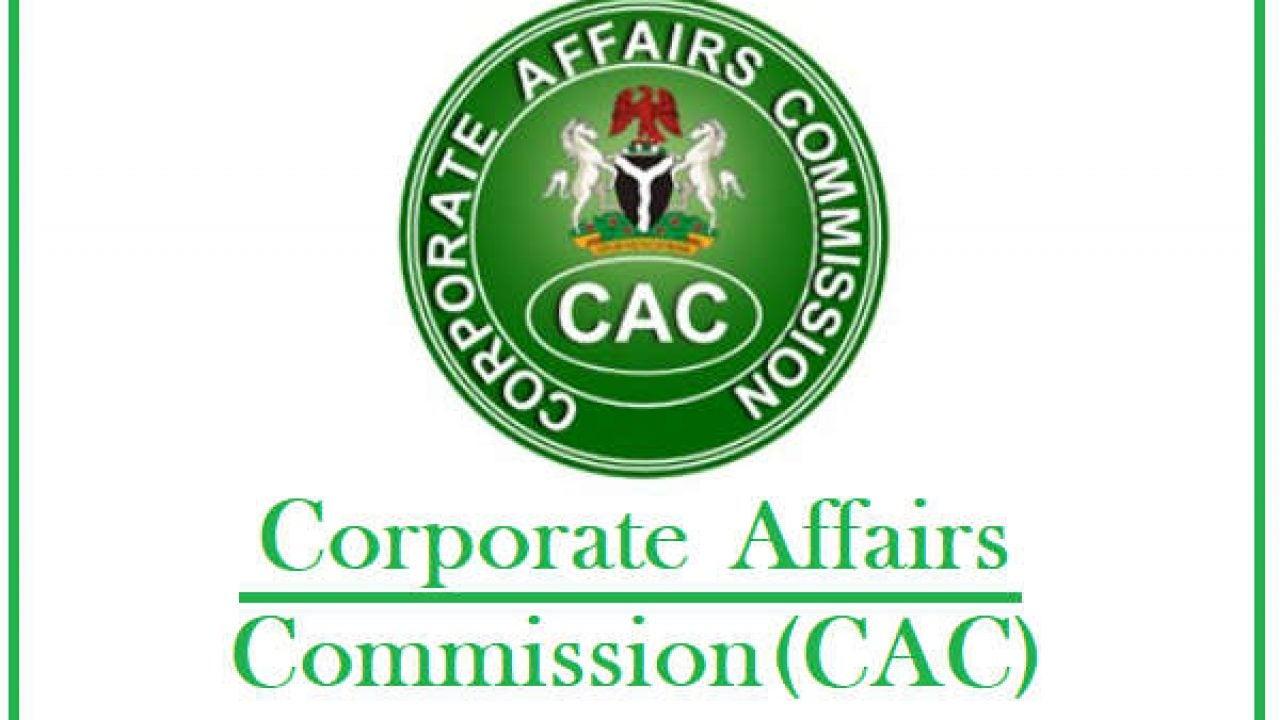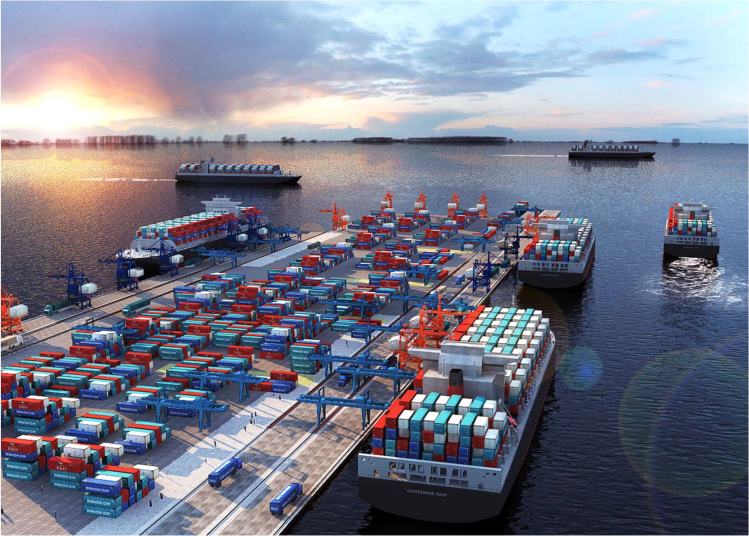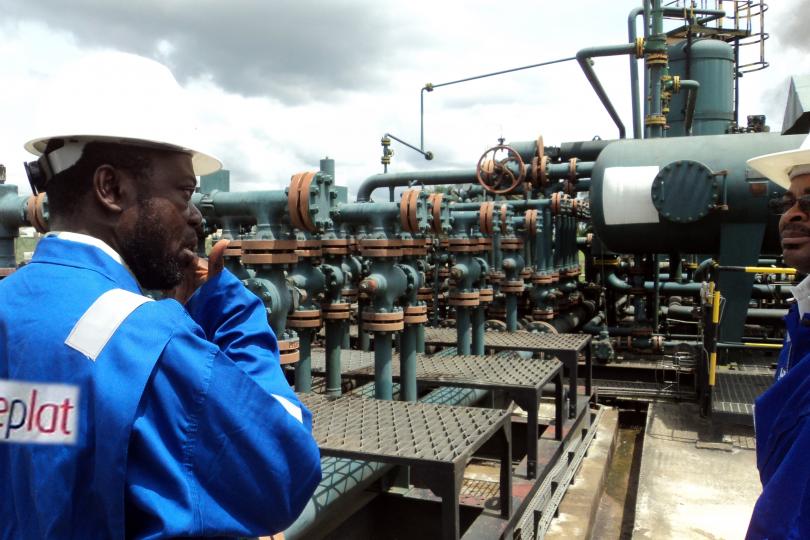- Germany’s Business Success Keys Revealed During Chancellor Merkel’s Visit
As President Muhammadu Buhari met with Chancellor Angela Merkel behind closed doors last week, a lively business roundtable was holding in The Brown Room, one of the many meeting rooms in the Aso Rock Villa. It was there the secret behind the success of German businesses was revealed by the visitors. It could not be ignored; it dominated the talks for several minutes.
“Size is not why our businesses are successful; we are successful because we are mostly family businesses, not just small-scale enterprises,” a member of the German delegation, who is a founder and CEO of a company, said. “German businessmen are extremely focused, extremely serious, and we also focus on communication.”
Some other members of the 16-member business delegation, led by Dr Ulrich Nussbaum, Secretary of State, Federal Ministry for Economy and Energy spoke in the same vein.
These founders and/or CEOs of successful German brands spoke passionately about Mittelstand, said to be the backbone of the German economy.
The Mittelstand are a core of small and medium-sized firms, many of which have existed for generations and noted for their durability and resilience.
According to Wikipedia, Mittelstand companies are “highly focused, achieving unprecedented efficiencies by designing a business model with a razor-thin focus and learning to do the one thing really well”; then to “compensate for their razor-thin focus, they diversify internationally and enjoy great economies of scale”.
Although the term could be more loosely applied, Mittelstand companies share the following features: Family ownership or family-like corporate culture, generational continuity, long-term focus, emotional attachment, flexibility, and lean hierarchies.
Among other things, the German delegation was also apprised of the strength of the Nigerian economy as well as opportunities for investments and partnerships.
On the Nigerian side were Minister of Industry, Trade and Investment, Dr. Okey Enelamah, who chaired the talks; Finance Minister, Kemi Adeosun; CEO of the Nigeria Export Promotion Council, Segun Awolowo, and members of the private sector, among others.
In his opening remarks, Enelamah enjoined participants of the round table to take advantage of the Forum to partner with the government to build synergies that will translate to increased trade and investment flows between Nigeria and Germany, help establish and strengthen business relationships, and provide practical lessons.
He explained the objectives of the forum as: “presenting the case for why we believe that Nigeria is the investment destination of choice. And we believe the German business community will continue to take advantage of the massive investment opportunity that Nigeria represents. Nigeria remains the number one investment destination in Africa, with announced investments of US$66.36 Billion in 2017. Apart from our domestic market of over 180 million, the largest in Africa, we are also the main gateway to the regional West African consumer market that is about as large as ours.
“Discussing and learning about two underlying strengths of the German Economy – the small and medium scale businesses (SMEs) and technical training.
“It is a well known fact that Germany enjoys a leading position among the world’s exporting nations because of your successful SMEs. Germany boasts an exceptional number of ‘hidden champions’ – companies which rank among the top three on the global market or are European leaders but are little known to the public. It is estimated that SMEs in Germany constitute more than 3.6 million companies and provide more than 60 percent of all jobs in your country.”
In a presentation, Awolowo, Executive Director/Chief Executive Officer of the Nigerian Export Promotion Council, highlighted Nigeria’s economic performance under the Buhari administration and outlined foreign investment opportunities and incentives in Nigeria.
He said Nigeria’s zero-oil plan was aimed at generating “ an extra US$25-30 billion from non-oil exports, and eliminate the country’s over dependence on crude oil prices.”
“Germany is expected to play a significant role in providing foreign investments to boost the Nigerian exports agenda,” he added.
Towards the end of the forum, President Buhari and his guest, Chancellor Merkel, joined in from an adjoining room. It was interesting to behold the two powerful leaders draped in simplicity, and as they took their seats on their respective sides of the aisle, their optics showed contentment about the success of the day.
After a briefing of the two leaders by Dr, Enelamah, they commended the outcome of the deliberations.
The forum had started earlier in the meeting room of Vice President Yemi Osinbajo with the signing of Memorandums of Understanding between the two countries.
Speaking after signing the MOUs, Enelamah said the agreements would increase collaboration between Nigeria and Germany to grow small and medium enterprises in Nigeria.
Theresa May
A few days before the visit of the Germans, British Prime Minister Theresa May led a delegation to Nigeria. Both in Abuja and Lagos, where they visited trade and investment featured prominently in his meetings.
“I was in Abuja and also in Lagos to see the thriving business community here. We want to see increased trade between Nigeria and UK, increased investment, bringing jobs here in Nigeria, jobs in the UK.”
FOCAC in China
In China where President Buhari attended the 7th Summit of the Forum on China-Africa Cooperation (FOCAC) shortly after the visit of the Germans, trade and investment also got prime attention. Indeed about 100 Nigerian businesses and 300 Chinese firms participated in the Nigeria-China business forum which took place a day after President Buhari began his visit,
President Buhari expressed satisfaction with the fruitfulness of FOCAC, disclosing that Nigeria has gained from China the execution of infrastructure projects worth $5bn across the country in the last three years
Conclusion
So in less than two weeks, Nigeria had high-profile engagements with three of the world’s leading economies.
Industry, Trade and Investment Minister unpacks the implications for Nigeria: “Naturally, these are strong stimuli to trigger excitement. The leaders of those powerful nations demonstrated belief in the potentials of the Nigerian economy; and endorsement of our efforts in exploiting the potentials in the various sectors of the economy for the benefit of all Nigerians.
“They also see in the economy investment opportunities for their nationals, which they didn’t mince words about.
“For sure, Nigeria is a strong economic force for partnerships in trade and investment. The several MoUs signed in the last few days testify to this.
“The ministry, and the federal government in general, is committed to ensuring that the country derives maximum benefits from the engagements and continue to improve the investment climate.”


 Naira4 weeks ago
Naira4 weeks ago
 Billionaire Watch4 weeks ago
Billionaire Watch4 weeks ago



 Naira4 weeks ago
Naira4 weeks ago






 Naira4 weeks ago
Naira4 weeks ago


 Naira3 weeks ago
Naira3 weeks ago






 Naira3 weeks ago
Naira3 weeks ago
 Economy4 weeks ago
Economy4 weeks ago


 Naira3 weeks ago
Naira3 weeks ago





















